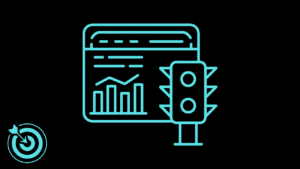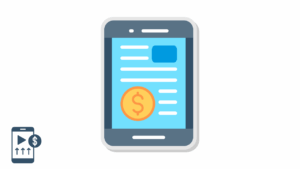Email remains one of the most effective and direct ways to connect with your audience, build relationships, and drive revenue. But to succeed, you need more than just a list and a message—you need the right email marketing tool that empowers automation, personalization, analytics, and ease of use. With dozens of platforms out there, choosing the best one can feel overwhelming. This guide breaks down the top email marketing tools available today, who they’re best suited for, and how they compare in features, usability, and pricing. In this article, we’ll share the best email marketing tools as your ultimate guide and comparison.
Why Email Marketing Still Delivers
Despite the rise of social media, email marketing continues to outperform in key metrics. It offers control over your audience, bypasses algorithm limitations, and produces high ROI when executed well.
Key benefits of email marketing:
- Direct access to subscribers without platform interference
- Highly measurable through open, click, and conversion rates
- Scalable with automation and segmentation
- Adaptable for sales, education, retention, and feedback
What to Look for in an Email Marketing Tool
Before diving into the list, it’s helpful to define what features you actually need. Not every business requires advanced automation or complex integrations. Some platforms cater to solopreneurs; others are built for large-scale enterprise campaigns.
Essential criteria:
- User-friendly interface and editor
- Deliverability and inbox placement
- Automation capabilities
- Personalization and dynamic content options
- A/B testing and analytics
- CRM and eCommerce integrations
- Pricing scalability as your list grows
1. Mailchimp Best Email Marketing Tools
Mailchimp remains a leading choice for startups, small businesses, and even mid-size companies. It offers drag-and-drop design, audience segmentation, and built-in analytics, all in a highly intuitive dashboard.
Notable features:
- Pre-built customer journey templates
- Basic CRM tools included
- Generous free tier for small lists
- Integrates with Shopify, WooCommerce, and Squarespace
2. ConvertKit
Tailored for creators, authors, and educators, ConvertKit focuses on simplicity and content-first marketing. Its automation features are strong but easy to set up, and the interface is minimal and distraction-free.
Notable features:
- Visual automation builder
- Subscriber tagging for segmentation
- Landing page builder included
- High deliverability rates
3. ActiveCampaign
ActiveCampaign is a powerhouse platform for businesses that rely on complex email sequences and tight CRM integration. It’s feature-rich, but the learning curve is steeper than some beginner platforms.
Notable features:
- Advanced automation workflows
- Predictive sending and split automation
- Native CRM for sales follow-up
- SMS and site messaging options
4. Brevo (formerly Sendinblue) Best Email Marketing Tools
Brevo offers email marketing, SMS campaigns, chat, and automation in one platform. So, it’s ideal for service-based businesses looking for multi-channel outreach from a single dashboard.
Notable features:
- Drag-and-drop automation builder
- Email and SMS marketing tools
- A/B testing on subject lines and content
- Finally, advanced segmentation by behavior and interests
5. Klaviyo
Klaviyo is designed with eCommerce in mind, particularly for Shopify and BigCommerce stores. It offers deep integrations and high-level automation for cart recovery, product recommendations, and purchase-based flows.
Notable features:
- Dynamic product blocks and recommendations
- Predictive analytics based on buyer behavior
- Personalized post-purchase flows
- Finally, integration with Facebook and Instagram Ads
6. GetResponse
GetResponse is an all-in-one marketing platform that combines email, landing pages, and webinar hosting. In addition, It’s ideal for companies running multi-faceted campaigns across channels.
Notable features:
- Conversion funnels and lead magnet delivery
- Webinar integration
- Marketing automation with behavior triggers
- Scalable for B2B and B2C businesses
7. Moosend Best Email Marketing Tools Comparison
Moosend is a budget-friendly solution that still offers robust features like automation, segmentation, and analytics. It’s a strong contender for small businesses or agencies managing client accounts.
Notable features:
- Real-time analytics dashboard
- Behavioral triggers and segmentation
- Pre-built templates with customization
- GDPR compliance and opt-in tracking
8. Drip
Drip is aimed at eCommerce marketers looking for deeper insights and personalization. It uses customer behavior to trigger automated workflows tailored to each shopper.
Notable features:
- Revenue attribution tracking
- Cart abandonment automation
- Email builder with dynamic personalization
- Integrates well with Shopify and WooCommerce
9. AWeber
One of the original platforms in this space, AWeber is reliable, simple, and consistently effective for small businesses, bloggers, and beginners.
Notable features:
- Pre-designed templates
- Drag-and-drop builder
- RSS-to-email for content creators
- Mobile app for campaign management
10. Benchmark Best Email Marketing Tools Comparison
Benchmark focuses on intuitive design and mobile-friendly email campaigns. It’s ideal for businesses that want beautiful emails without technical complexity.
Notable features:
- Responsive email templates
- Real-time editing and preview
- Surveys and polls for audience engagement
- Integrates with over 300 apps and platforms
Email Marketing Platform Comparison Table
| Tool | Best For | Key Strength | Standout Feature |
|---|---|---|---|
| Mailchimp | Small businesses | All-in-one design and automation | Pre-built journey templates |
| ConvertKit | Creators & bloggers | Simplicity + segmentation | Visual automation builder |
| ActiveCampaign | Advanced business marketers | Automation depth + CRM | Predictive sending + split testing |
| Brevo | Service-based businesses | Omnichannel marketing | Email + SMS + chat in one dashboard |
| Klaviyo | eCommerce | Dynamic content + integrations | Revenue-focused email flows |
| GetResponse | Mid-size marketing teams | Webinar + email combo | Complete funnel builder |
| Moosend | Budget-conscious users | Low-cost with advanced tools | GDPR compliance + live analytics |
| Drip | Online stores | Personalization + tracking | Behavior-triggered automation |
| AWeber | Beginners | Reliability and ease of use | RSS-to-email automation |
| Benchmark Email | Design-centric marketers | Visual builder and mobile previews | Interactive polls and real-time editing |
How to Choose the Right Email Marketing Tool
Every platform has strengths. Your ideal choice will depend on the stage of your business, your technical skill level, and the kind of communication you plan to prioritize.
Questions to consider:
- Do I need automation or simple newsletters?
- Is integration with eCommerce critical?
- How many emails will I send monthly?
- Do I want design control or simplicity?
- What’s my budget as my list grows?
Final Thoughts
Email marketing remains a foundational strategy for connecting with your audience. With the right tool, you can scale communication, personalize messaging, and track performance in a way that supports growth. Whether you’re a creator, coach, brand, or startup founder, the platforms in this guide offer options tailored to your needs.
Test a few tools before committing. Most offer free trials or freemium plans that let you evaluate the interface, support, and features in real-world campaigns. Prioritize usability, scalability, and strategic value over flash. Email isn’t just a channel—it’s a long-term asset that deserves smart tools to match your ambition.
Use this guide as a launchpad to find the platform that helps you build trust, tell your story, and drive results in a crowded digital landscape.








